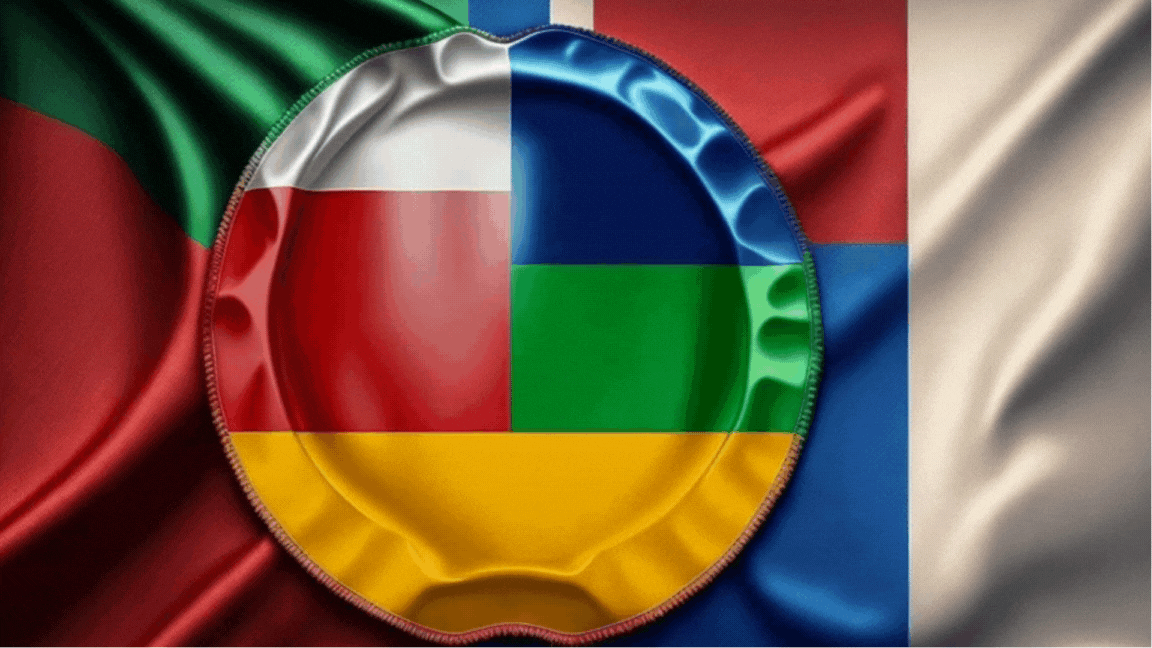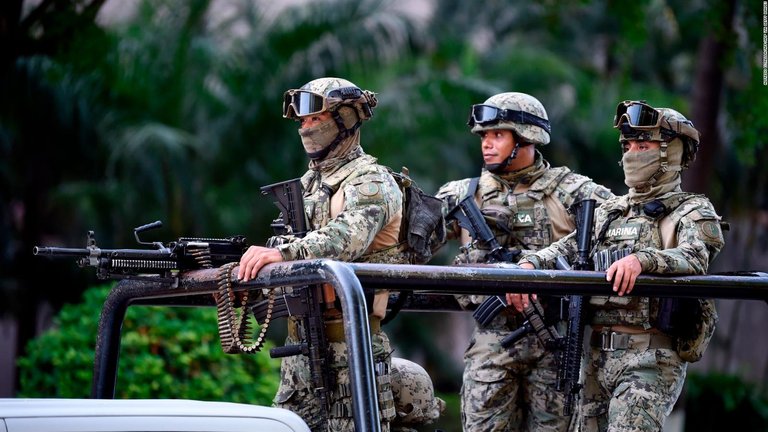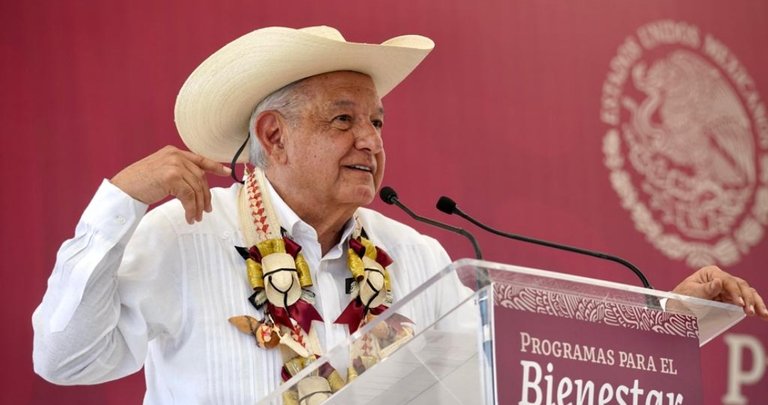
Maduro and his Guyanese counterpart to meet to discuss the Essequibo conflict
The disputed Venezuelan president has achieved what he wanted. The Chavista leader can be accused of many things, starting with his often clumsy statements—to say the least—, but no one can take away from him the fact that he has resisted for years, alone, a Washington policy based on clubs, with sanctions and actions aimed at his jugular. In this sense, Maduro has appealed to a debatable and perhaps immoral at times political strategy, but practical, which undoubtedly works, and which consists of always having something strategic to bring to a potential negotiating table, having the power to facilitate something that your enemy is very interested in. Right now he has on his side the practical capacity to decide whether or not to call elections, whether or not to deactivate the disqualifications that weigh on certain opponents and particularly on María Corina Machado, the opponent with the greatest possibility of ousting him from the Miraflores Palace, as well as having a representative number of imprisoned opponents with some Americans included, regardless of whether or not there has been due process in their criminal prosecution. With all this "in his favor", he managed to get the White House to temporarily suspend the sanctions that the current administration inherited from Donald Trump, committing himself—in principle—to call elections next year, and to enable a mechanism for the disqualified opponents to dispute their cases individually.
Regarding the conflict with Guyana over the Essequibo region, which we have already discussed on several occasions, it is good to take a position on an aspect that we set aside in our previous incursions into the subject. According to experts, for years, with Chávez in power, Venezuela stopped giving heat to this confrontation, betting on integration following Cuba's political orientation. Only after the announcement of the discovery in 2015 of important crude oil deposits in the disputed area, did Caracas return to discuss the jurisdiction over the Essequibo. I insist, just to remind, that I am fully convinced that historical reason is on the side of the land of Bolivar, which was the victim of a blatant dispossession by the United Kingdom. Then, when Venezuela sought Washington's support at the end of the 19th century, the American representatives who were supposed to defend it ended up playing in favor of the British, in a fraud recognized by one of its direct witnesses. Guyana fiercely embraces that flawed process to defend its sovereignty over that area inherited from the UK, and has not wanted to sit down to negotiate with its neighbor. That's why it took the case to The Hague, ignoring the mechanism agreed in 1966—with British blessing included—in Geneva to settle the differences.
 Lula has reinforced the presence of Brazilian military on the border with Venezuela and Guyana (source of the image).
Lula has reinforced the presence of Brazilian military on the border with Venezuela and Guyana (source of the image).In this context, Chavism has resorted to the classic move of stirring up a conflict as much as possible, even suggesting—really suggesting, I think, and that has been enough—that things could escalate to the military level. Next December 14, with the presence of "Bishop" Lula da Silva in the room, Maduro will speak face to face with his peer Irfaan Ali in St. Vincent and the Grenadines. "I am activating to the maximum the Bolivarian Diplomacy of Peace, always in defense of the historical rights of Venezuela. Once again we will defeat lies, provocations, and threats", said the former bus driver who now serves as Venezuelan president. "I remain firm in that the controversy is before the (International Court of Justice) and is not for negotiations and that will not change", answered Georgetown with a rather low negotiating or conciliatory spirit. I have said and I confirm that Guyana's position seems to me quite arrogant and haughty, a bit like copying the ways of its former colonists. In a step that I find regrettable, they have also disengaged from the vision of "regional sovereignty" before the United States that has dominated the area in the last two decades, seeking instead support from the Pentagon. We will keep an eye on developments in what follows.
The glaring debts of López Obrador in the battle against organized crime
AMLO took over a country morally bankrupt and bent on the rule of organized crime. At least at times, and in certain areas, México is a failed state, and it was unlikely that the current president would be able to solve in six years a problem that is a kind of hydra with a thousand heads. What I criticize in him is how he often tries to downplay the importance of the problem in his statements, coming across as a politician who is not empathetic. López Obrador has to tear his clothes—in a sincere way—before all the deadly victims that organized crime claims every day, whether they are criminals, civilians, police, or military; before every kidnapping, before every extortion. Yesterday I commented on the unfortunate case that occurred in Texcaltitlán, State of Mexico, in which 14 people were finally killed in a cross massacre between farmers and members of a criminal group, supposedly due to a disagreement on the part of the former regarding an illegal tax imposed on them "for each square meter planted". This is what AMLO said today about the tragic event: "We have to be very careful that there is no drug consumption because we have to fight drug trafficking and what is happening, which unfortunately happened yesterday in the State of Mexico: extortion, the so-called "pago de piso", all of this we have to fight, but among all of us". It seemed to me to be an unhappy example of what I said above.
 The Mexican president has been unable to deal forcefully with organized crime (source of the image).
The Mexican president has been unable to deal forcefully with organized crime (source of the image).The quick regional roundup
In the also complicated land of Colombia, two individuals were killed and four more injured in the continuation of a wave of violence uncovered in the last third of November in the border municipality of Ipiales, with at least seven murders recorded since then. The first case was a shooting in the San Vicente neighborhood, which left one person dead and four wounded. The second case involved an individual who was shot to death, with the neighbors of the community denouncing the launching of pamphlets warning of a plan to carry out a "social cleansing".
Police authorities in Ecuador reported today the seizure of around one ton of cocaine, with Europe as the intended destination for the lethal cargo, without identifying a particular country. The National Police raided a property in the province of Santa Elena, in the western region of the country. The premises "was used as a storage center for narcotic substances that were later sent to the European continent", said the authorities. The presence of drug trafficking networks has undermined citizen tranquility in a country where a good part of the people experience night curfews.
This Sunday begins the Milei era in Argentina.
And this is all for our report today. I have referenced the sources dynamically in the text, and remember you can learn how and where to follow the LATAM trail news by reading my work here. Have a nice day.

Edited with Canva.

Thank you for keeping us updated on the latest news in Latin America. I really appreciate your efforts. Keep up the great work!
I am deeply grateful because of this sound feedback, especially coming from you. I have followed and praised your work since my very first days here. Best regards from the Island.
Congratulations @limonta! You have completed the following achievement on the Hive blockchain And have been rewarded with New badge(s)
You can view your badges on your board and compare yourself to others in the Ranking
If you no longer want to receive notifications, reply to this comment with the word
STOP